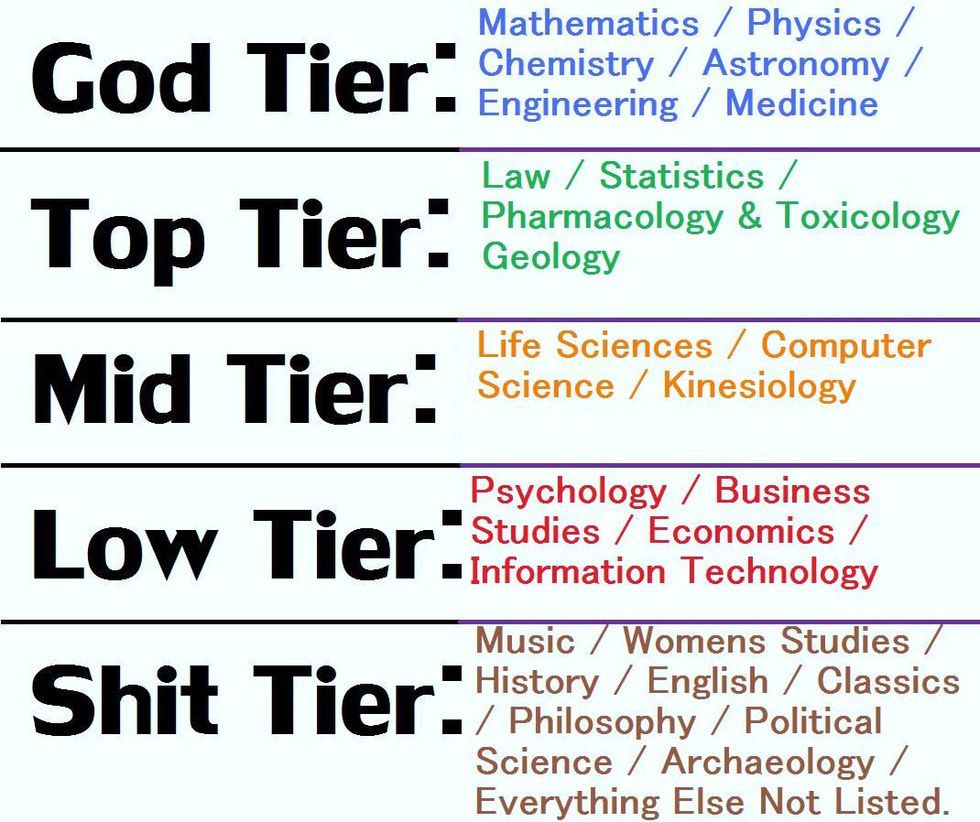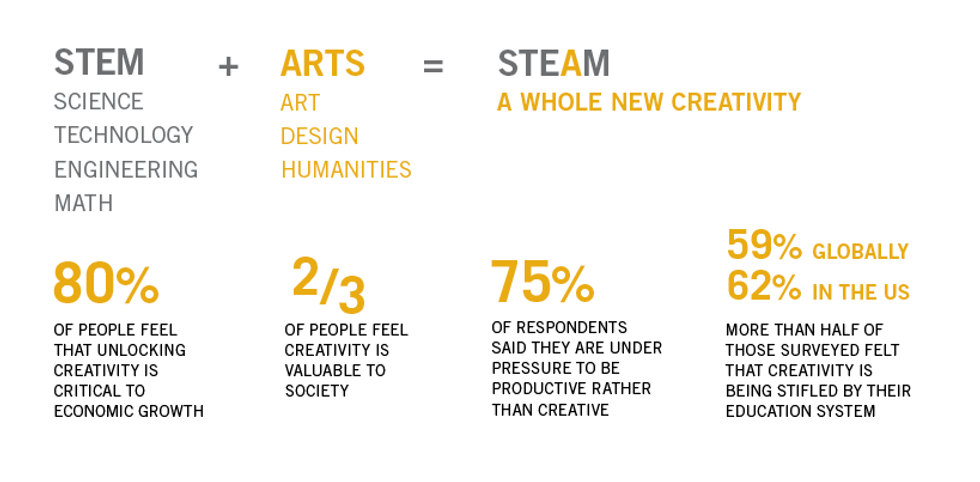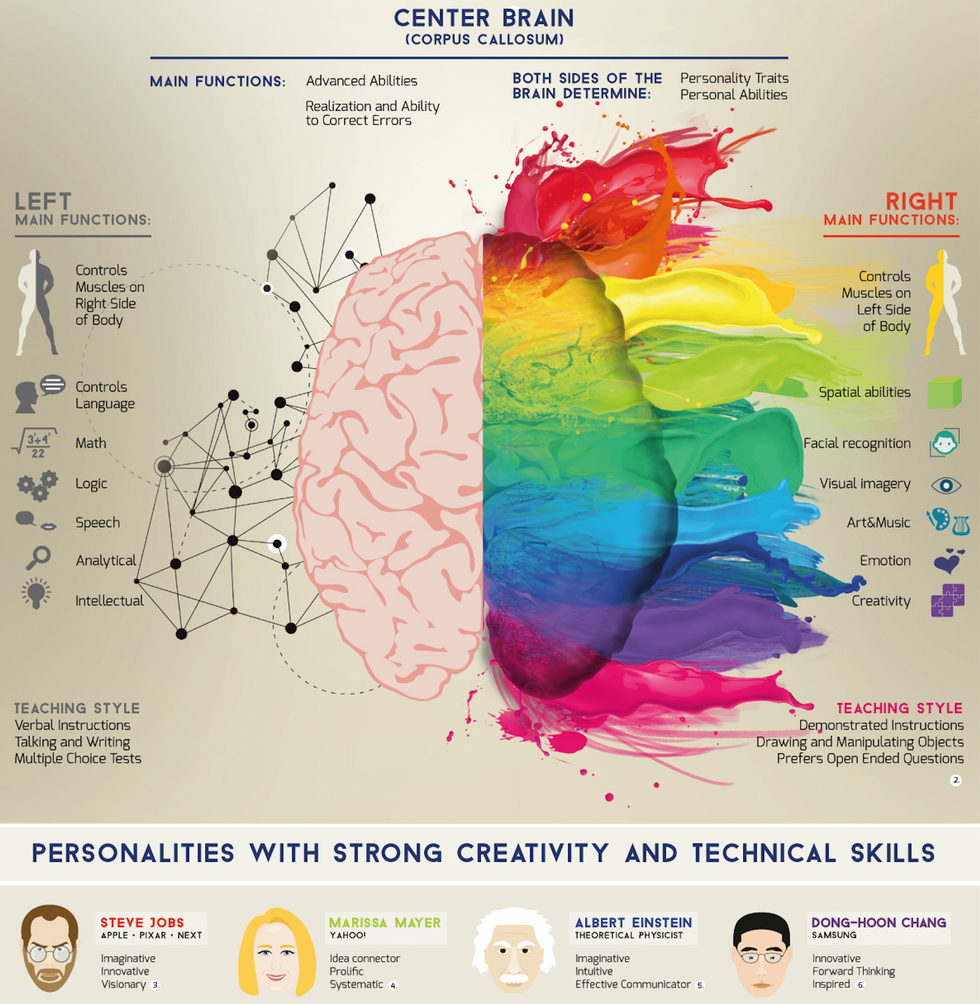Over the years, there has been an ongoing battle between creative majors and liberal arts majors versus the STEM majors. If you are in college now or getting ready to graduate high school, I am sure you know exactly what I am talking about.
I often hear fellow students discussing how they are more likely to be successful than any other major because they are in the STEM fields — science, technology, engineering and math — while pitting themselves against the liberal arts and creative studies. Creative majors, such as illustration, design or fine arts, are just some of the studies people deem to be lesser. People assume that drawing, designing or digital art takes absolutely no skill. Liberal art majors, such as history, advertising, public relations or sociology, are a few subjects in which some people believe to be insignificant to world evolution. People continue to talk down on these majors without exactly knowing why they are needed and why they are still relevant today and to future society. Therefore, creating a dichotomy that actually does not make sense.
All companies are faced with some sort of problem ranging from a plethora of different foundations. Let's take Tidal's streaming services for example. Tidal has a major business problem in which there are a million other services out there doing the same thing and has yet to find a way to differentiate itself from the others, so no revenue is being created. Why has Tidal failed at overcoming other streaming services? Simply because it lacks a story. The content that is offered is not enough to keep consumers interested. The team behind the madness is not using a creative enough mindset in order to make them stand out among the competition.
Musician David Byrne states that in order to excel in subjects like math and science, you are to "think outside the box," which is a popular demand that employers will ask of their workers in order to solve problems. The best way to approach Tidal's problem is to build a team of creative thinkers who have a background of various studies under their belt. You will obtain a creative thinking from the arts, whereas the STEM fields deal with a more structured and concrete way of thinking and way of teaching. With such a vast range of knowledge, you are a more well-rounded individual. This allows you to think differently from your colleagues.
Some may disagree with this argument. They say that there are people who have surpassed expectations without having knowledge of the arts. I'm not denying that this has happened, but it is clear to see that people tend to exceed in their fields when they have a foundation in the arts and knowledge of the sciences. This is due to the fact that they have knowledge from multiple disciplines, including the arts. Even someone like Steve Jobs, who dropped out of school, had people on his team that had both creative and STEM backgrounds.
There is also science behind this topic! Theories like the left-brain or right-brain dominance sparked part of this debate in which a specific number of traits come from either side of the brain. The Left-Brain Dominance Theory states that those who use their left brain are more logical, analytical and objective. The Right-Brain Dominance Theory states that those who use their right brain are more creative, intuitive and expressive. Of course, these are only theories. But if these theories are true, would it not be useful to have a grouping of people who embody one or the other strongly or to have someone who uses both sides to their advantage? A well-rounded individual makes for greater success than someone who is only versed in one discipline.
In National Geographic's "The Importance of Art Education," Neil deGrasse Tyson discusses how cultures thrive from the arts and sciences. It doesn't just take engineers, scientists or those with a STEM background to make a great idea come to life. It takes artists, designers, social workers and so many more. People forget that Leonardo da Vinci is still a legend today because of the impeccable knowledge of painting, music, literature, anatomy, engineering and so much more that he used toward his work. People forget about great Greek philosophers like Socrates and Aristotle. People forget about the works the Egyptians did that was by no means less than great.
Everyone should value creative, liberal arts and STEM majors. They are all vital to the success of society. Yes, STEM fields can be more demanding, but that does not make them more or less worthy than other degrees. So stop demeaning those who choose the creative route. Support people getting their college degrees!























